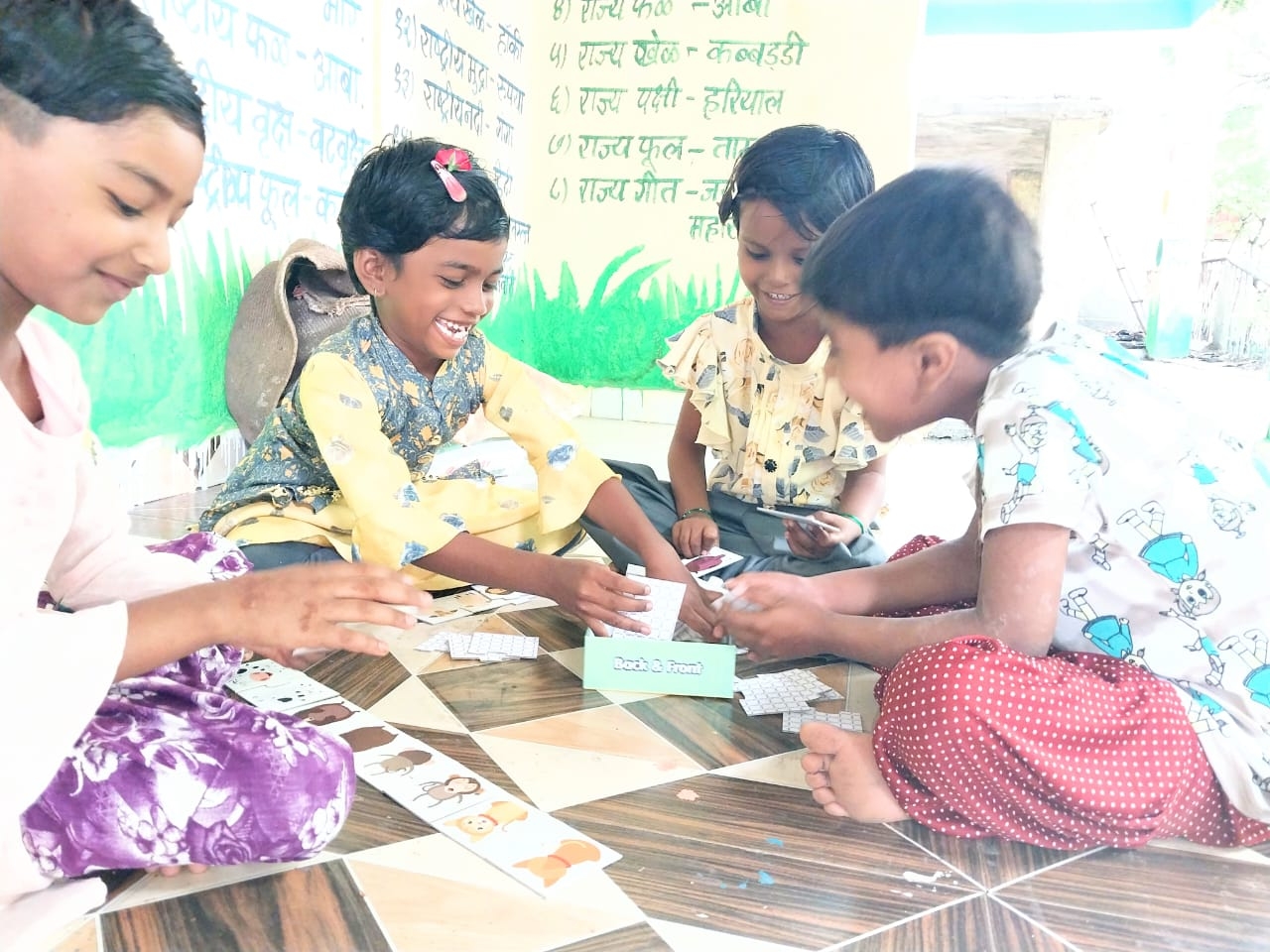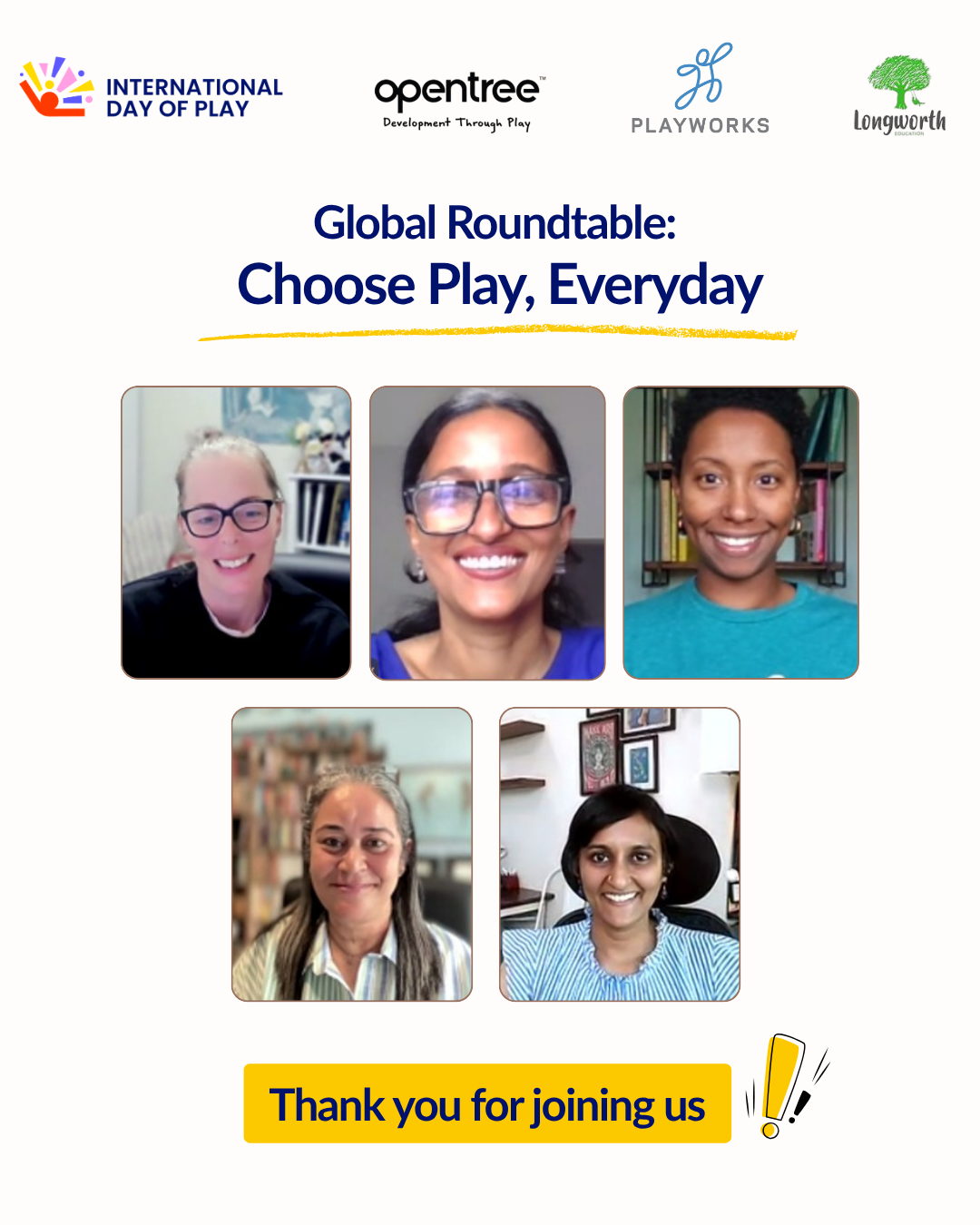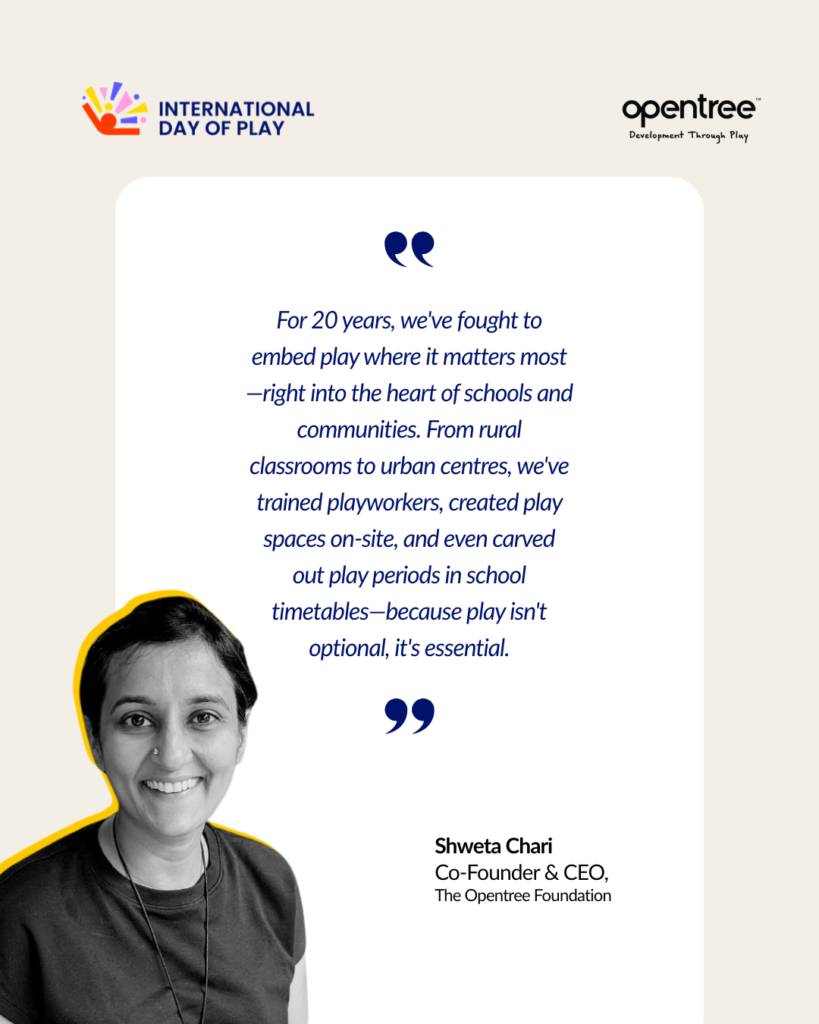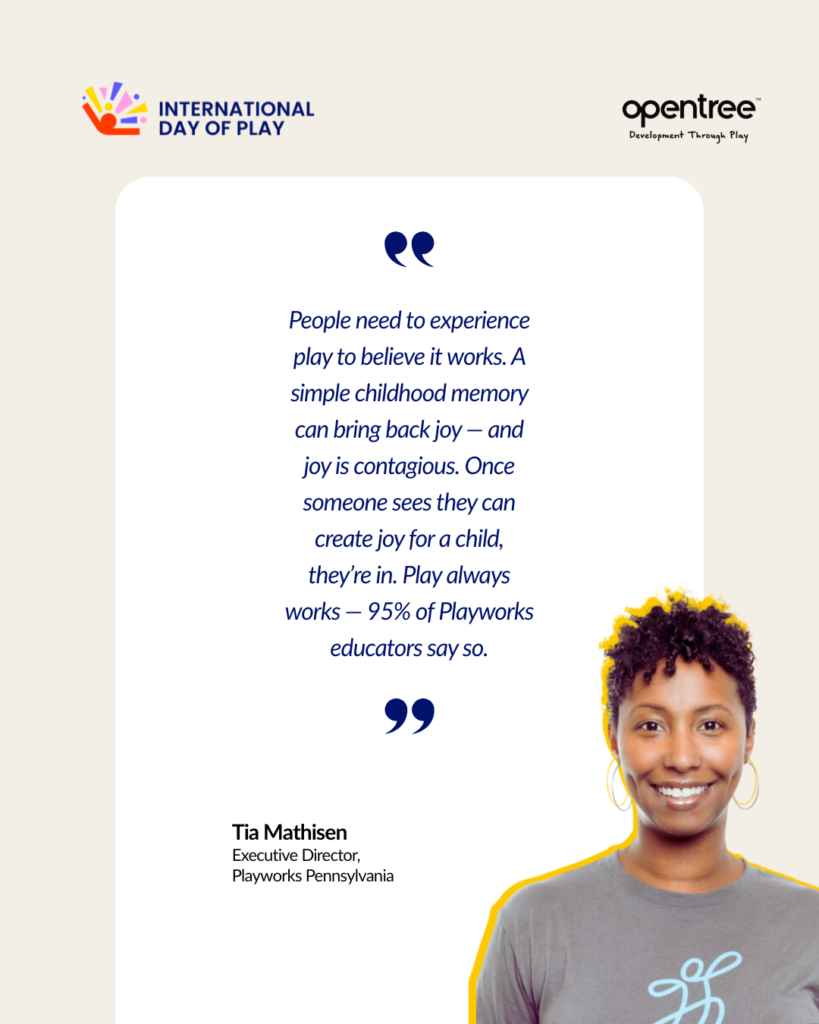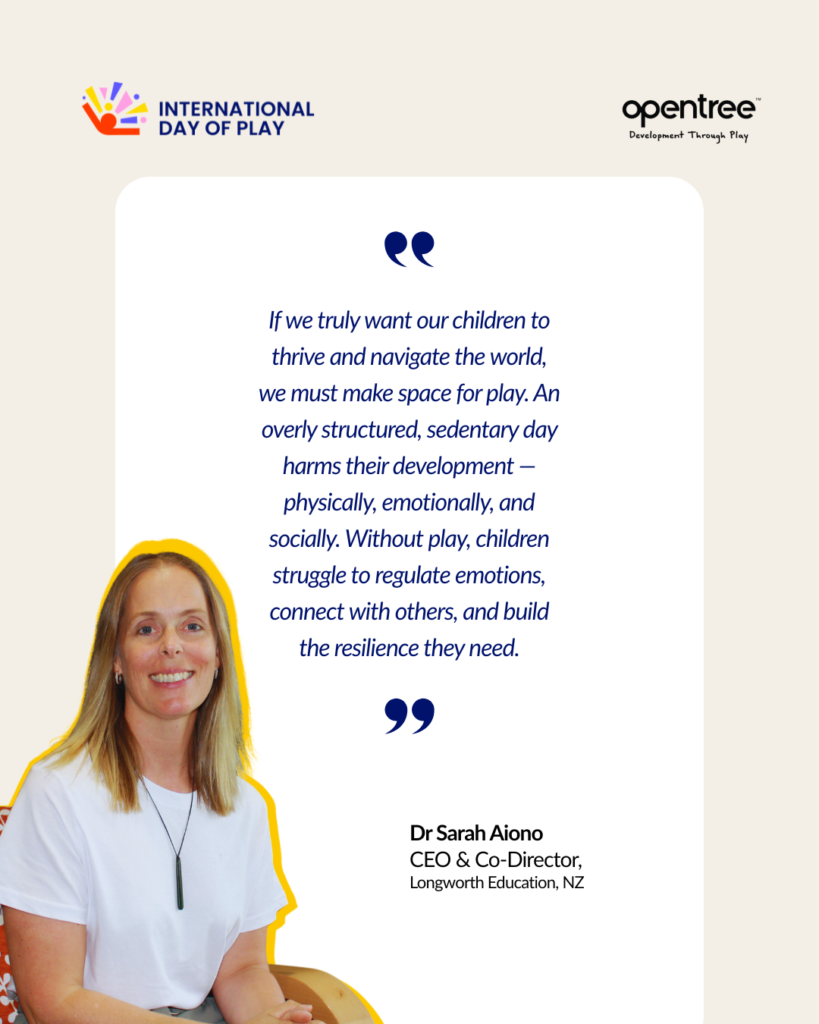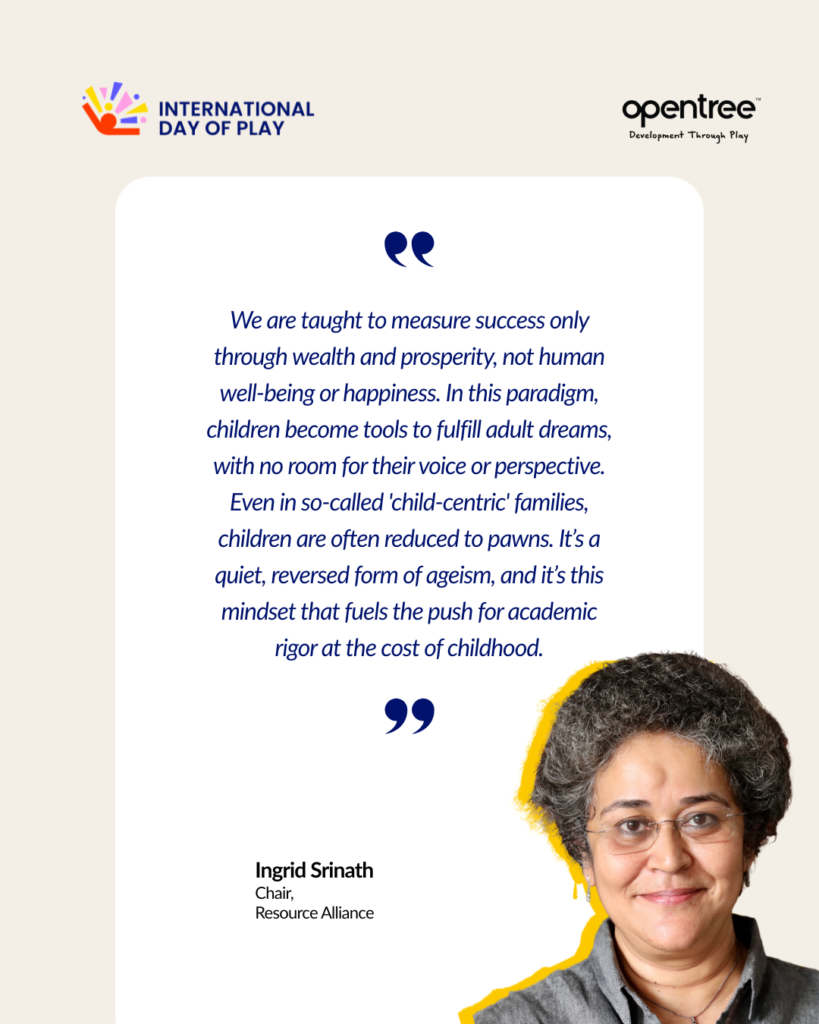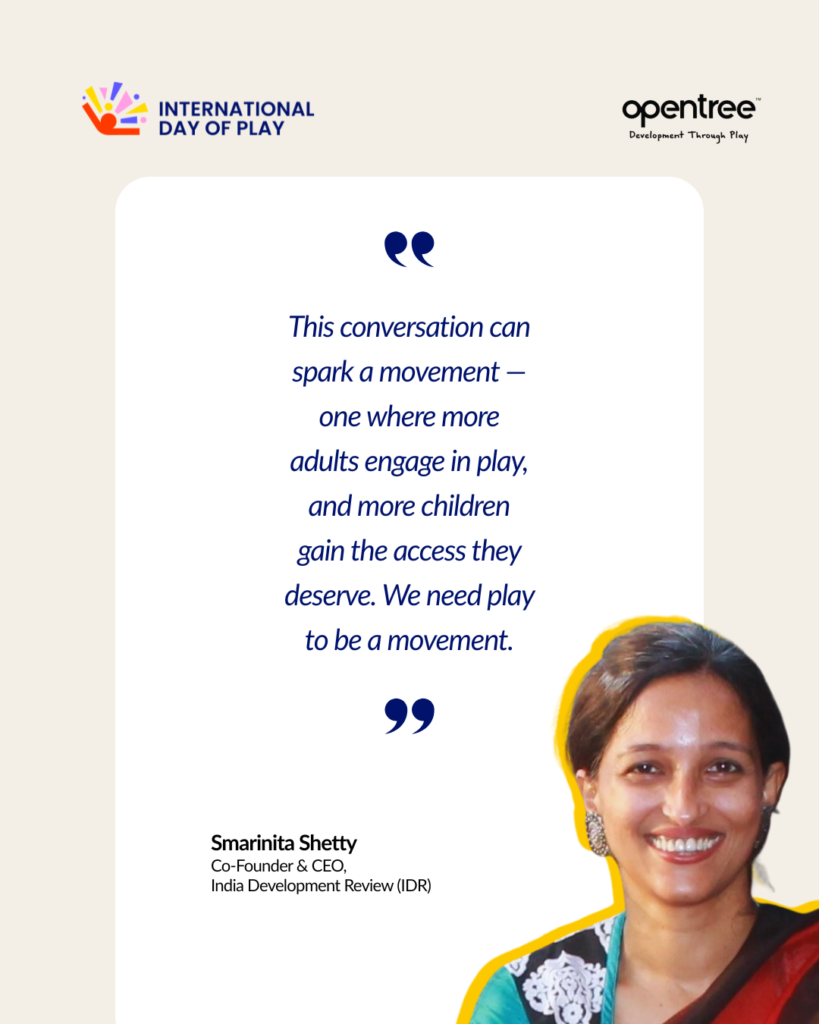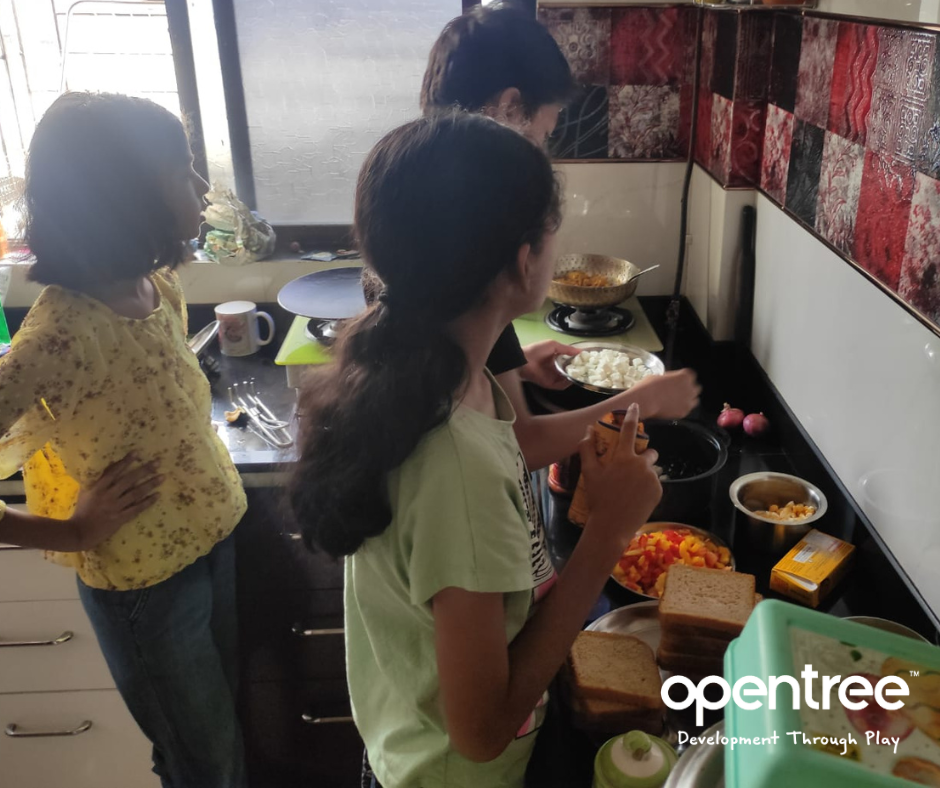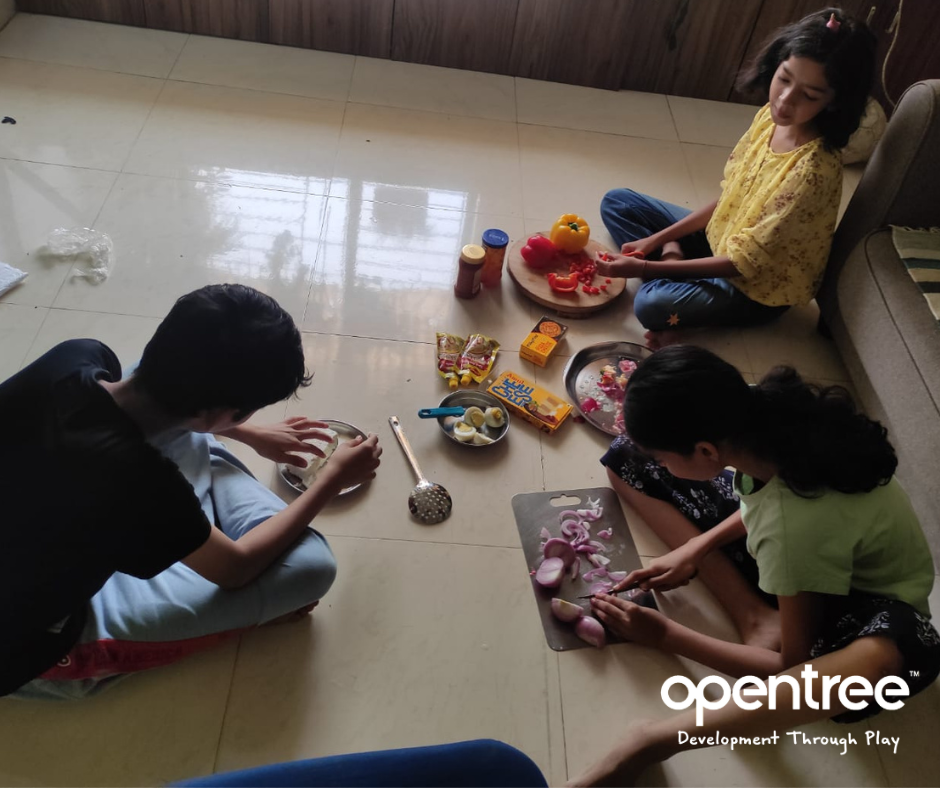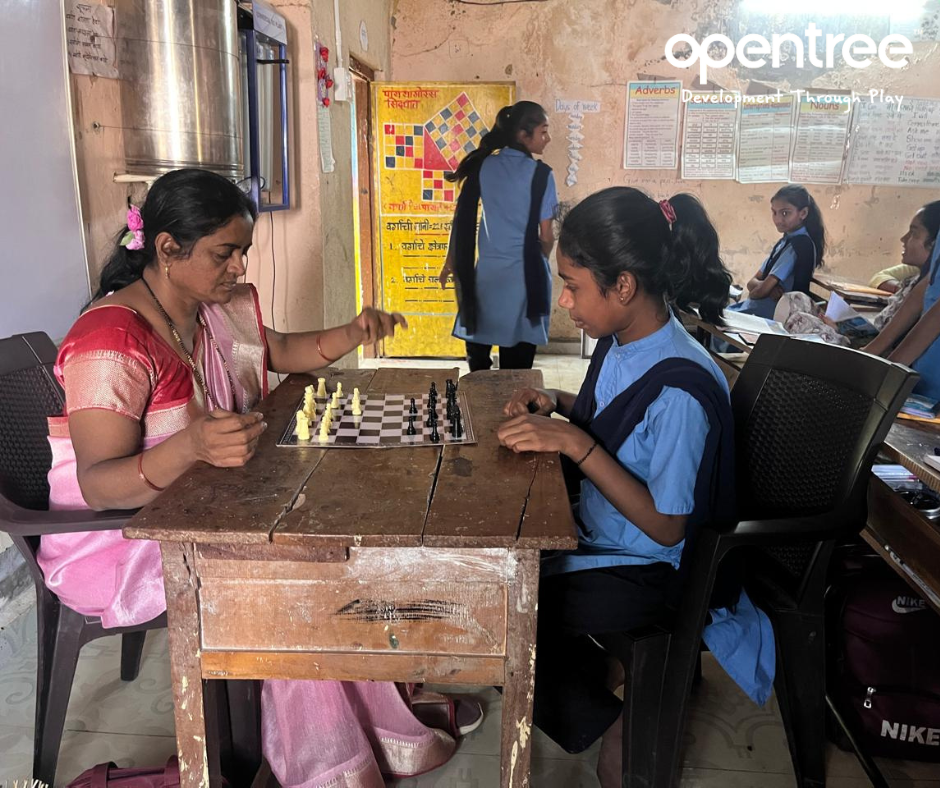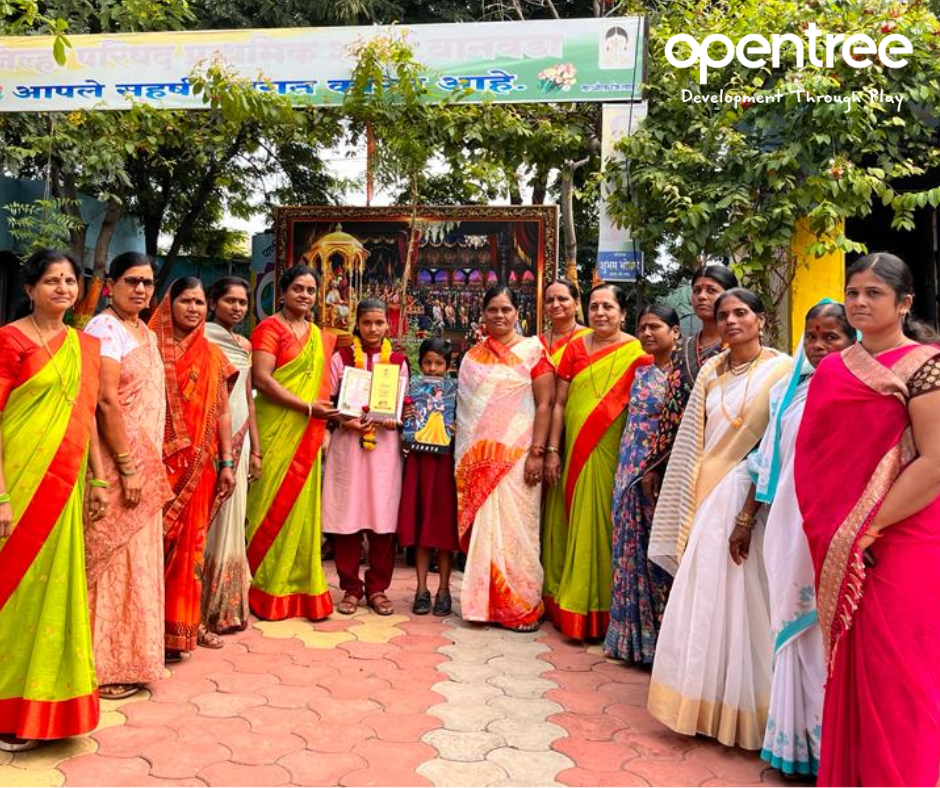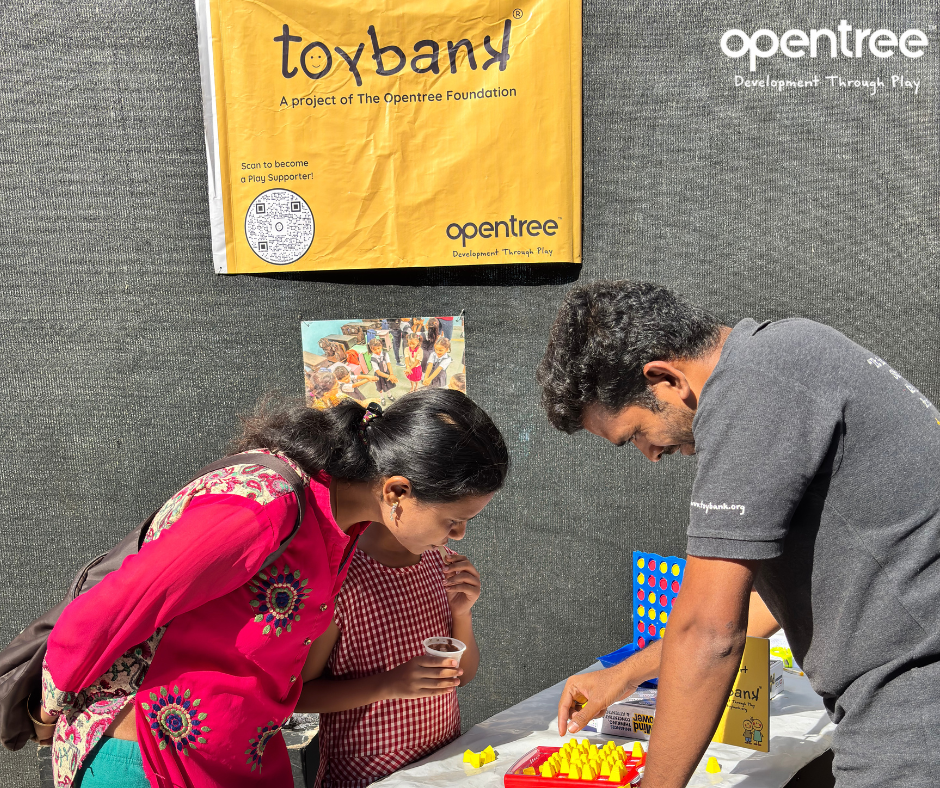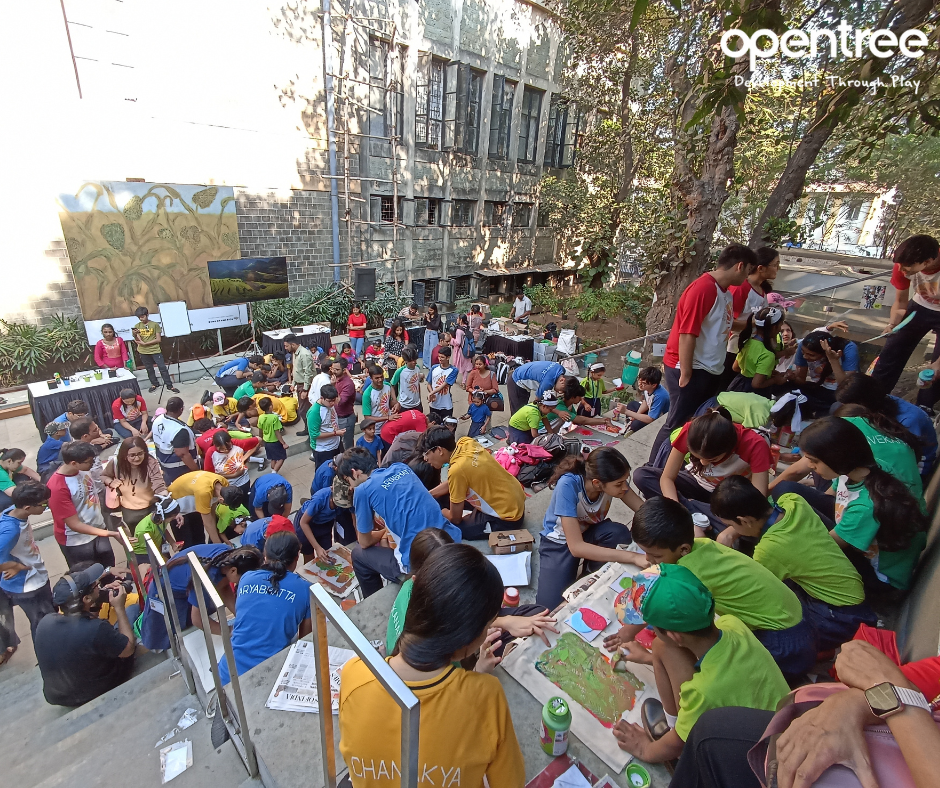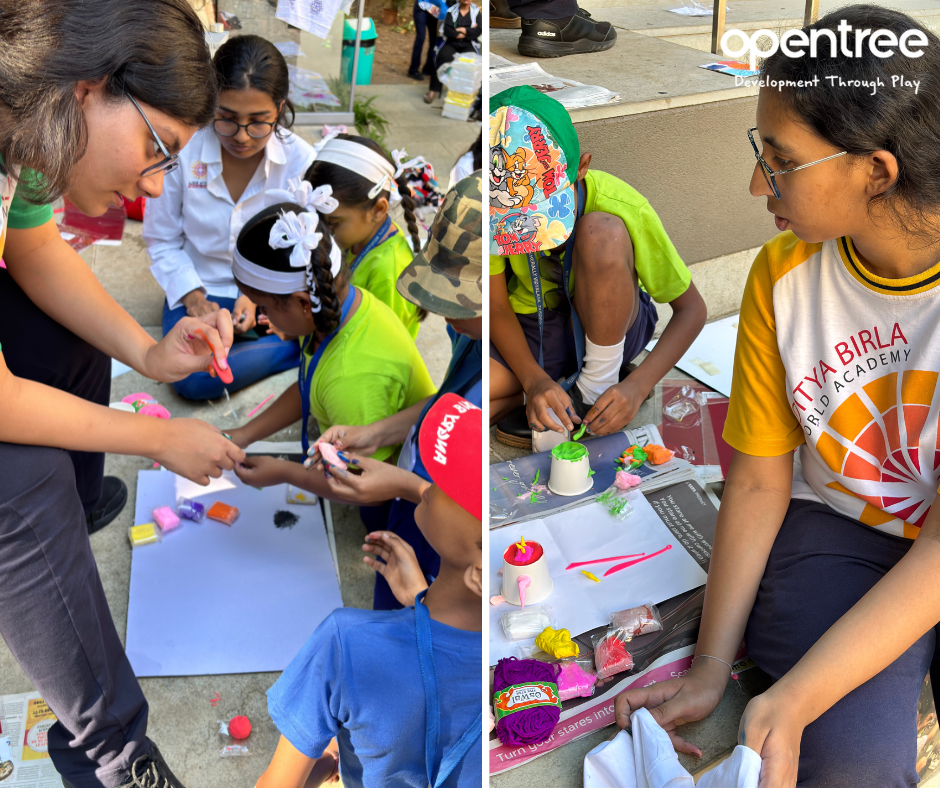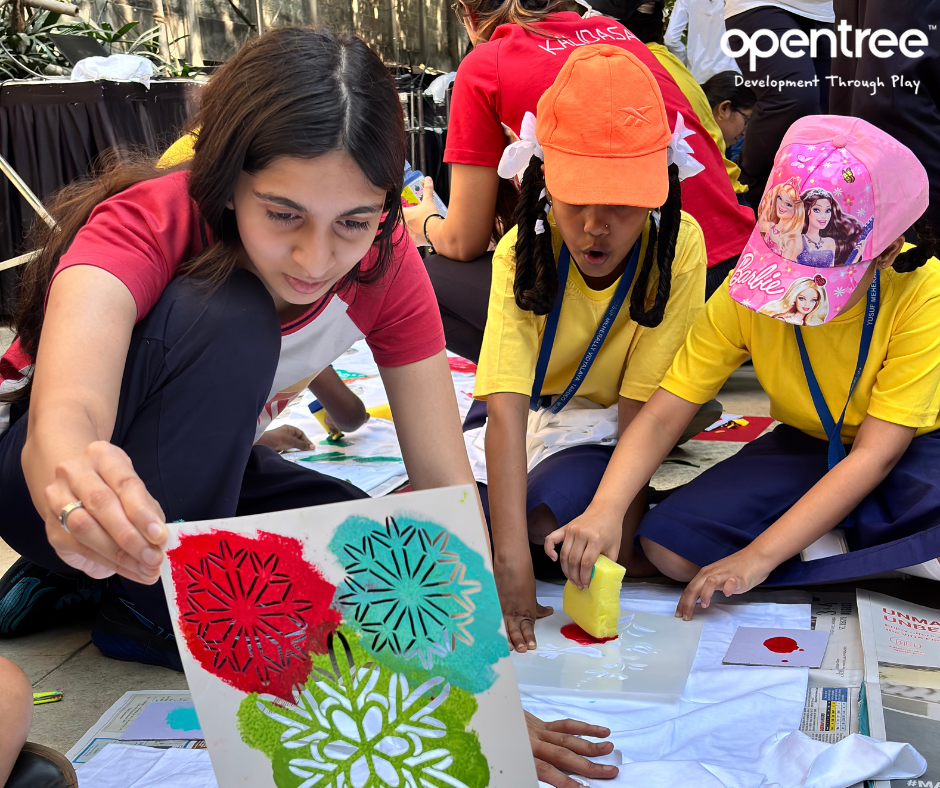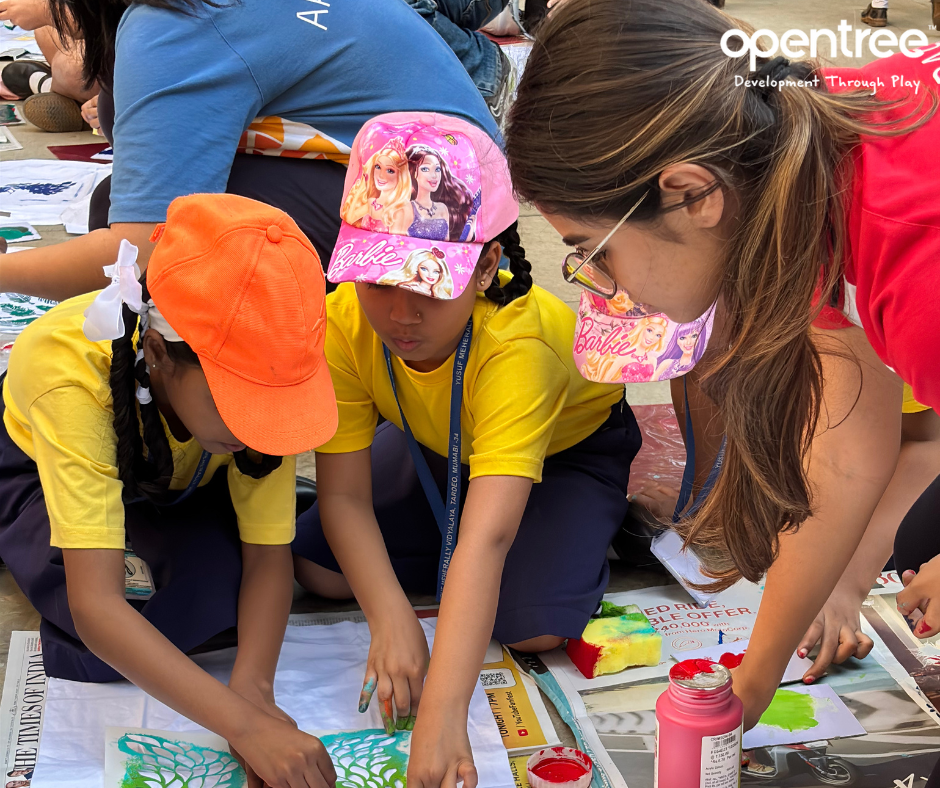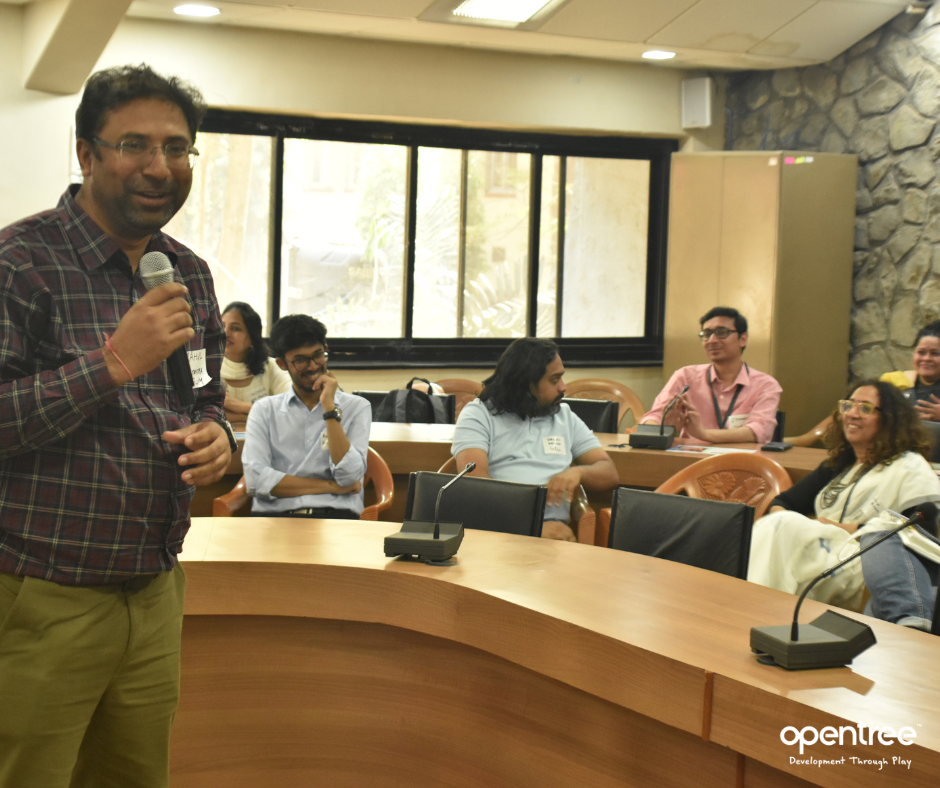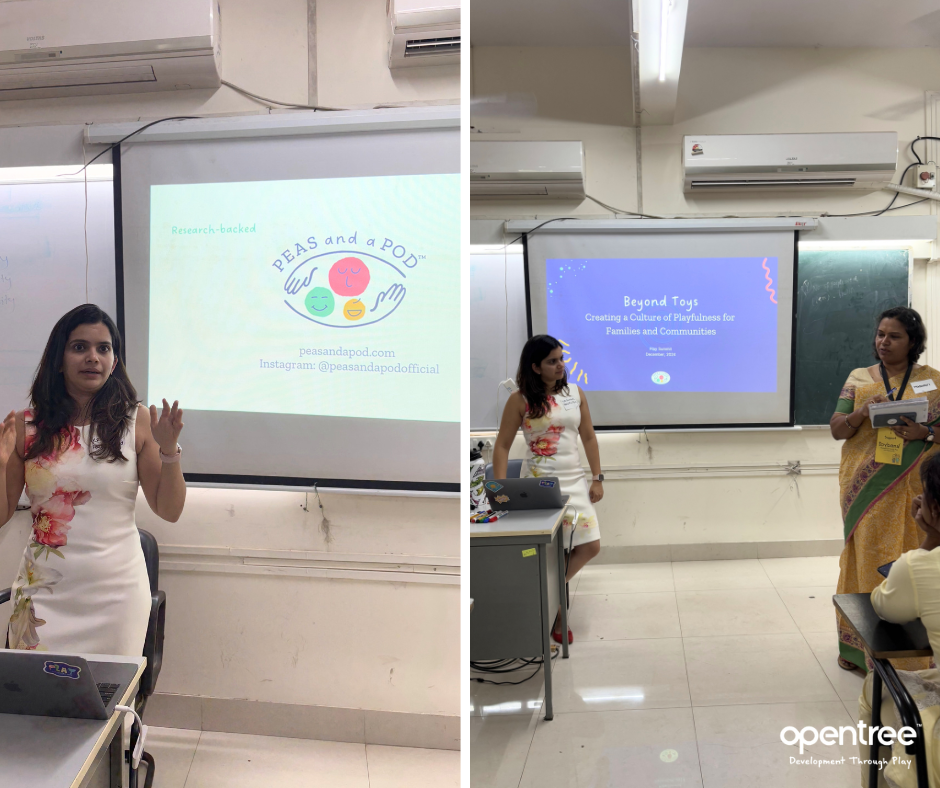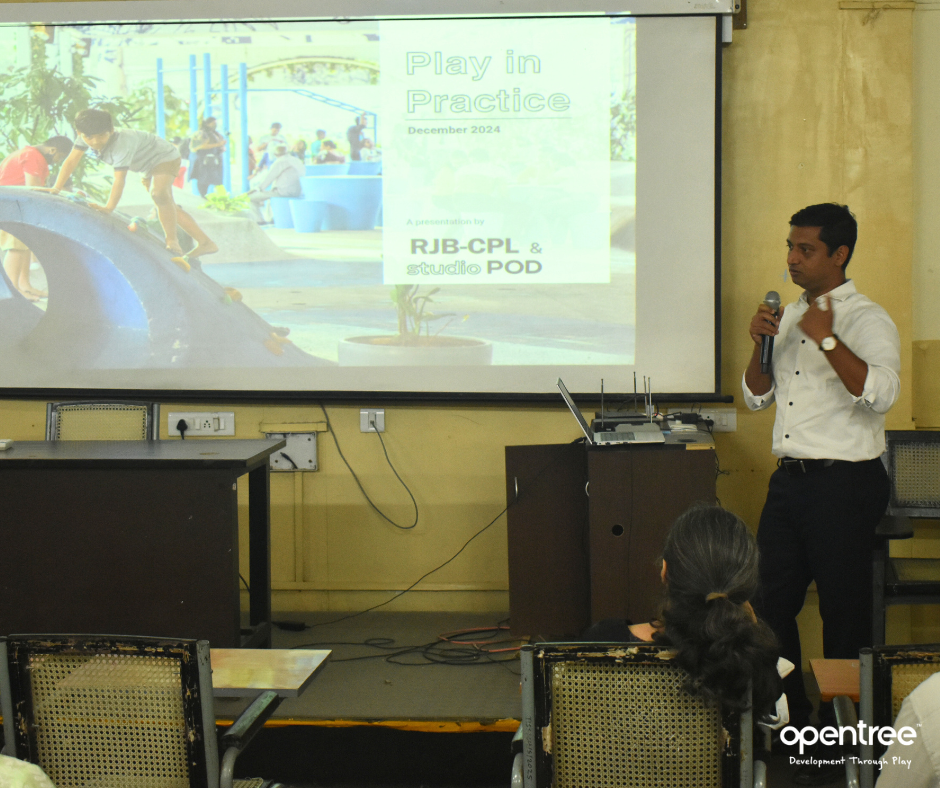The invisible stress children face in urban India, and how play helps
“Tss-tss- tss-pshhhh” — a long whistle from the pressure cooker next door breaks the silence at dawn. In a one-room apartment, a child wakes and folds away the cloth they slept on so the kitchen can be set up. Outside, rickshaws honk and vendors call out prices. After a hurried breakfast, the walk to school begins, the bag on their back almost as heavy as they are. But even when the school bell rings at the end of the day, their work isn’t over. There are groceries to buy, siblings to look after, a house to clean. At just 10-years-old, their hours are filled with chaos, rush, and responsibility.
This isn’t unusual. For millions of children growing up in India’s cities, this is everyday life. Homes are crowded, streets are noisy, and schedules are relentless. Children carry not only books and chores but also invisible burdens: of stress, of expectations, of too little space to simply be.
Over time, this constant pressure shapes how children see themselves and the world. Some grow restless or withdrawn, others anxious or angry. What often gets overlooked is that beneath all this, every child still longs for something very simple: the chance to play and just be a child.
Play is often mistaken as “extra”, something that comes after studies or chores, if there’s time. But play is how children learn best. When they build, imagine, and role-play, they are also problem-solving, collaborating, and discovering themselves. For children in marginalised communities, who often lack safe spaces and supportive environments, play becomes even more critical. It is the one moment where their ideas and voices take centre stage, where they can lead, take risks, and experience the joy of success without fear of failure.
This is why play and play-based learning matters. Counting marbles can build numeracy, a round of carrom can teach patience, role-play can unlock language, and a puzzle can strengthen focus and resilience. For children who struggle with rigid, rote-based schooling, play opens a door back into learning. It turns fear of failure into curiosity, and disengagement into active participation.
The Opentree Foundation brings Conscious Play® into classrooms and communities where play is missing. Their Life Skills Play Programmes are not just about games, they are carefully curated spaces where children feel safe, supported, and encouraged. Volunteers like me and teachers guide children through games and activities that build both life skills and emotional wellbeing. Over time, we see children not only laughing and playing, but also showing more confidence in school, stronger friendships, and healthier ways of coping with stress.
I remember this one child would always sit in the corner, arms folded, refusing to join. Week after week, we kept inviting him in. One day, he quietly picked up a puzzle. By the end of the session, he wasn’t just playing, he was showing others how to solve it. That small shift says everything about the power of play.
I’ve seen it myself. One mischievous boy resisted for weeks, until we found the game that lit him up. Suddenly, he was laughing, engaging, even teaching others. At first, I used to watch the clock during sessions. Now, I dread the end, seeing the children’s faces fall when we pack up. That’s when I realised: what TOF offers is not just play. It is a relief. It is childhood, protected for just a little while longer.
In underserved communities, children often grow up faster than they should. Household chores, sibling care, and financial struggles leave little room for play. Schools too can be rigid, with their focus on exam results. By embedding play in these spaces, TOF ensures that children do not lose out on the joy and developmental benefits of play simply because of where they are born. Their work levels the playing field, giving every child, no matter their background, the right to play and learn.
Play is not a luxury. It is a lifeline. It gives children space to process big feelings, to connect with others, to imagine new possibilities. In cities that often ask children to grow up too soon, play lets them hold onto the magic of being young, if only for a while.
This article is written by our long-term student volunteer Rihan Shetty.









